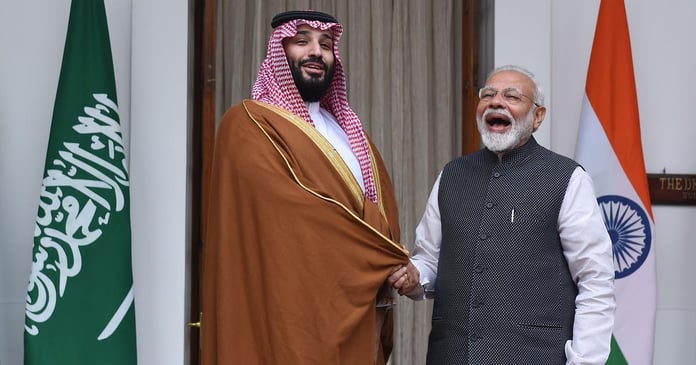New Delhi, India – In a significant testament to India’s diplomatic prowess and rising geopolitical influence, the Foreign Policy magazine highlights New Delhi’s transformative role as a major player in the Middle East over the past decade. While the United States has been preoccupied with its focus on China, India has fostered robust and burgeoning partnerships with prominent nations in the region, including Israel, Saudi Arabia, and the United Arab Emirates (UAE). This strategic evolution underpins the changing dynamics of the international order and exemplifies the willingness, and perhaps even eagerness, of these nations to harness the benefits of this new multipolarity.
In an insightful analysis penned by Steven A Cook, the article emphasizes that the United States must acknowledge this development, as it is a reality that cannot be dismissed. Surprisingly, the emergence of India as a viable alternative to Washington in the Middle East may even prove advantageous in unexpected ways. While the United States may no longer hold unchallenged supremacy in the region, the expanding presence of India safeguards against Russia and China assuming that role. This newfound equilibrium not only enhances regional stability but also offers an opportunity for the United States to recalibrate its approach.
The article duly acknowledges that India’s relations with Israel have matured significantly and stand out as the most well-established among New Delhi’s engagements in the region. A watershed moment occurred in 2017 when Prime Minister Narendra Modi became the first Indian leader to undertake a historic visit to Israel, cementing the foundations of a robust partnership. Moreover, the Gulf nations of the UAE and Saudi Arabia are vigorously exploring avenues to fortify ties with India. This transformative shift is particularly remarkable considering that both countries, especially Saudi Arabia, have traditionally aligned themselves with Pakistan. However, this pivot toward India stems not only from a shared interest in combating Islamist extremism but also from the allure of mutually beneficial economic prospects.
Saudi Arabia, India’s second-largest supplier of oil and gas, seeks to deepen the energy relationship by venturing into renewable sources, augmenting the existing cooperation. Overcoming hesitations from the Indian business community, recent developments demonstrate a growing willingness to invest in Israel. Notably, in 2022, the Adani Group, in collaboration with an Israeli partner, secured a tender worth USD 1.2 billion for Haifa Port. Moreover, negotiations for an India-Israel Free Trade Agreement are ongoing, further solidifying the foundation for future collaboration. It is worth acknowledging the complexities within the India-Israel relationship, as India maintains steadfast support for the Palestinians, maintains friendly ties with Iran, and often views Israel through the lens of its colonial history.
Drawing attention to Prime Minister Modi’s recent visit to Egypt, the article highlights the blossoming camaraderie between the two nations. This episode follows Egyptian President Abdel Fattah al-Sisi’s third visit to India since assuming power, further underscoring the warm and amicable relations between the two countries. Similar to China, India recognizes Egypt’s strategic significance as a gateway to access African and European markets, providing an impetus for closer economic ties.
While it is tempting for US policymakers and analysts to view India’s growing role in the Middle East solely through the prism of great-power competition with China, the article implores a nuanced perspective. Acknowledging the Biden administration’s shift in approach, from de-emphasizing the region to recognizing it as a realm of opportunity in containing China, the author, Steven A. Cook, argues that an additional counterweight to Beijing in the Middle East would be valuable. Prime Minister Modi’s visit to Washington in late June further demonstrated the flourishing bond between India and the United States, marked by a state dinner and an address to a joint session of Congress.
However, despite the positive trajectory of US-India relations, the article cautions against excessive expectations of New Delhi as a strategic partner in the Middle East. India diverges significantly from the United States and Israel concerning Iran, warranting moderation in Washington’s aspirations regarding India’s economic and security ties with the region. While it is unlikely that India will align itself with the United States, it is equally improbable that New Delhi will undermine Washington’s interests as both Beijing and Moscow have done.
READ: Why is the United States focusing on India?
Conclusively, it is imperative to take India’s projection of power in the Middle East with utmost seriousness. India’s ascendancy as a key player in the region signifies a paradigm shift in global dynamics, amplifying its role in shaping the evolving international order. As New Delhi strengthens its partnerships and deepens its involvement, the Middle East witnesses a recalibration of strategic alliances and the emergence of a multipolar landscape. The United States must recognize this transformative shift and harness the opportunities it presents to forge mutually beneficial relationships with India, as the world continues to navigate a rapidly changing geopolitical environment.

